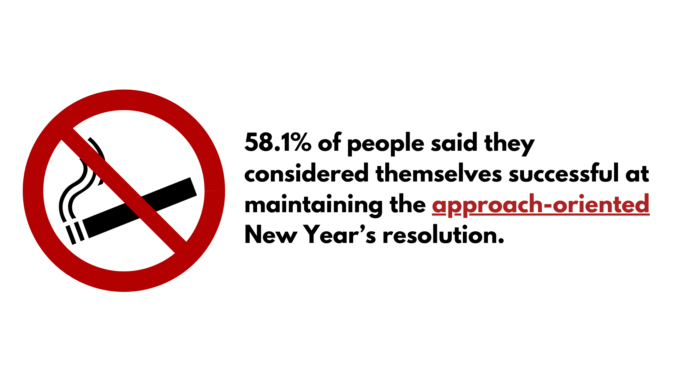
Eliyahu Gasson | Opinions Editor
I can’t recall if I’ve ever set a New Year’s resolution for myself. I suppose I never saw the utility in doing such a thing. I thought few people actually stuck to their goals, so why should I bother? I always figured it made more sense to just do something rather than waiting for the new year to roll around. I quit smoking and vaping on a whim. I lost a lot of weight in high school just because I felt like it.
I thought of New Year’s resolutions as a meaningless exercise. Mark Twain, the author of “Adventures of Huckleberry Finn” and “The Adventures of Tom Sawyer,” shared a similar outlook in a letter to the Territorial Enterprise in 1863.
“Now is the accepted time to make your regular annual good resolutions. Next week you can begin paving hell with them as usual. Yesterday, everybody smoked his last cigar, took his last drink, and swore his last oath.”
It turns out that I may have been looking at this whole New Year’s resolution thing all wrong.
My first misconception – that people do not tend to keep their resolutions is false, according to polling data. According to YouGov, 49% of Americans who set resolutions in 2020 kept at least some of them, while 35% say that they kept all of their resolutions. The remaining 16% did not keep any of their resolutions.
It is worth noting that the same poll also found that only 27% of Americans made New Year’s resolutions in the first place, so don’t feel too terrible if you refrained from setting a resolution this year. You’re in the majority!
So why do people tend to stick to their resolutions? One reason may be the Fresh Start Effect. A study for the journal Psychological Science asked participants to sign up for email reminders about their goals. Some of the participants were given an arbitrary date, say “May 14.” Other participants were reminded of their goals on “landmark dates” like “the first day of spring.”
The researchers found that when people started working on a goal on a landmark date associated with new beginnings, they were more likely to stick to their goals.
So that old cliché of “new year, new me” is more true than that we may give it credit for.
But simply setting a goal for the new year is not enough to ensure success. Some types of goals are more effective than others, according to a study by PLOS ONE.
The study differentiates between two categories of goals. The first are avoidance-oriented goals. Such goals involve stopping, quitting and/or mitigating undesired behavior. Goals in this category can include things like “quit smoking cigarettes,” “stop consuming energy drinks” or “avoid unnecessary interpersonal conflicts.”
The second category, referred to as approach-oriented goals, involves adopting a desired behavior. Goals like “start using nicotine gum,” “drink more water” or “improve and maintain interpersonal relationships.”
Perhaps unsurprisingly, the study from PLOS ONE claims that people who selected approach-oriented goals were “significantly more successful in maintaining their resolutions,” with 58.1% of said individuals considering themselves as having successfully maintained their goals.
Compare that number to those individuals who set avoidance-oriented goals, with only 47.1% of them claiming to be successful in keeping their resolutions.
This is because, at least in part, it’s more enjoyable to do something that you want to do rather than avoiding something you don’t want to do.
Although I missed the opportunity to set a goal for the new year, it’s not too late. I have another landmark date coming up – the start of a new semester.
However, it’s not too late to set a goal for a personal landmark date, Jan. 11 – the start of the new semester!
I spend too much money parking on campus. That’s something I want to change. But instead of saying “I’m not going to drive to school anymore,” which is phrased as an avoidance-oriented goal, I’ll say “I’m going to start taking the bus to campus more often,” phrased as an approach-oriented goal.
A similar approach can be taken for any habit you want to change. Try to think of your goal as adding something to your life, rather than taking something away, and start following your goal on a day you associate with a new start, whether it be a religious holiday like Easter or something more personal like your birthday.
Or, you could wait for the new year to come around again. Remember, there is no right way to make a resolution. We all operate differently, so operate at your own speed.
Eliyahu Gasson has joined the Duke staff as the Opinions Editor for the university’s Spring 2024 semester.
